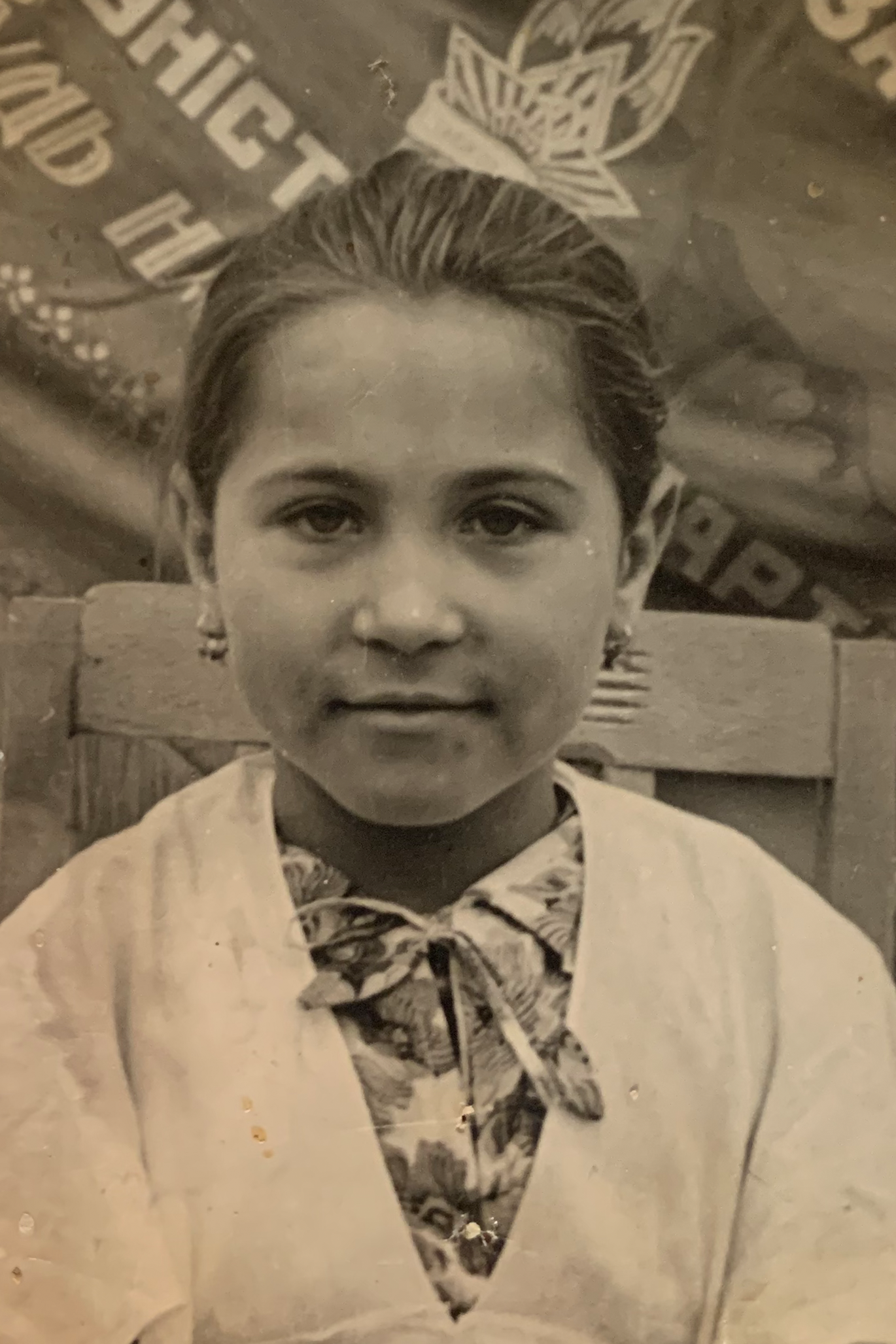If you look at our village, like all villages, they... <...> Thanks to the fact that they are hard-working, that they do everything with their own hands, they had chickens, geese, pigs, they worked hard, let's say. But at that time, everyone was worried. Imagine, we had empty stores, there was nothing to buy. I go, for example, to the market, see that there is a queue and ask: "What do they give"? Now we are going to the market with a list, and this was not the case before — what you see, you take. They give bowls, they give cans — that is, they sell dishes. And you get in line without even knowing what's on sale there. Those queues were exhausting. We had a shop number 20 on the corner, a grocery store. In the morning, grandma Zina lived here where you come in. “ Aunt Zina, I took the queue, please watch out.” And we were so busy waiting in line, and I was running to work. And at five o'clock they will give butter, cottage cheese, milk. That's what we had. And these coupons, too! We've been through it all, you know? And so I'm running home from work, letting Grandma Zina go, and she's sitting there, talking to the old women and laughing, but she keeps the line, otherwise, if you lose the queue, nothing will happen. That's how we lived. For example, it was impossible to buy fine clothes for children. We sewed. It so happened that my husband went to France in [19]90 to live with his uncle. He arrived, and I asked: “Mihas, do they have sugar?”. We had everything on coupons. And he said: “ You know, I won't tell you anything, well, keep in mind that I challenged you. My uncle and I went to the embassy there, and we called you. You'll go next year and see for yourself how people live.” He says, “ I can't tell you, you have to see it.” And when I went to France for the second year, I looked at it and asked my uncle: “Uncle, do those shops ever run out of these goods?” The fact that everything is there, and on such a large scale, was incomprehensible to me, you know? For example, we went to the Ternopil region, and there is a town called Borshchiv. When we went into the store, can you believe it – an empty store, nothing there. And the shop assistant was standing there. And I was horrified... Here, at least we have something, you can buy it at the market. In the shops here, it's the same – you come and want to buy something beautiful from the kitchenware, and there's nothing. I had no pots and pans. And I loved all this cookware so much. It used to be very difficult to get all that stuff. Everything was a special favour. They say at work: “Today, girls, they brought goods – they will give us shoes, Czech shoes.” Czech shoes used to be very expensive. God, standing in those queues... And how I used to get furniture! I signed up for furniture, and for a whole month we kept this queue. And I signed up for a sofa: I needed a sofa because my children were growing up, I had to buy a sofa. I stood in line for a month, and the day came when the furniture was delivered. They brought it once a month. I took the sofa, and my colleague said to me: “Valia, they also have wardrobes.” So not only did I take the sofa, I also took a wardrobe... I don't remember. Or a desk. I got it right away, it was my turn, and they had more, so I took it. So we stood there... It was just, you know, people were mocked. And you stand there like a slave, like a humiliated person, you don't feel like yourself. No dignity at all.







